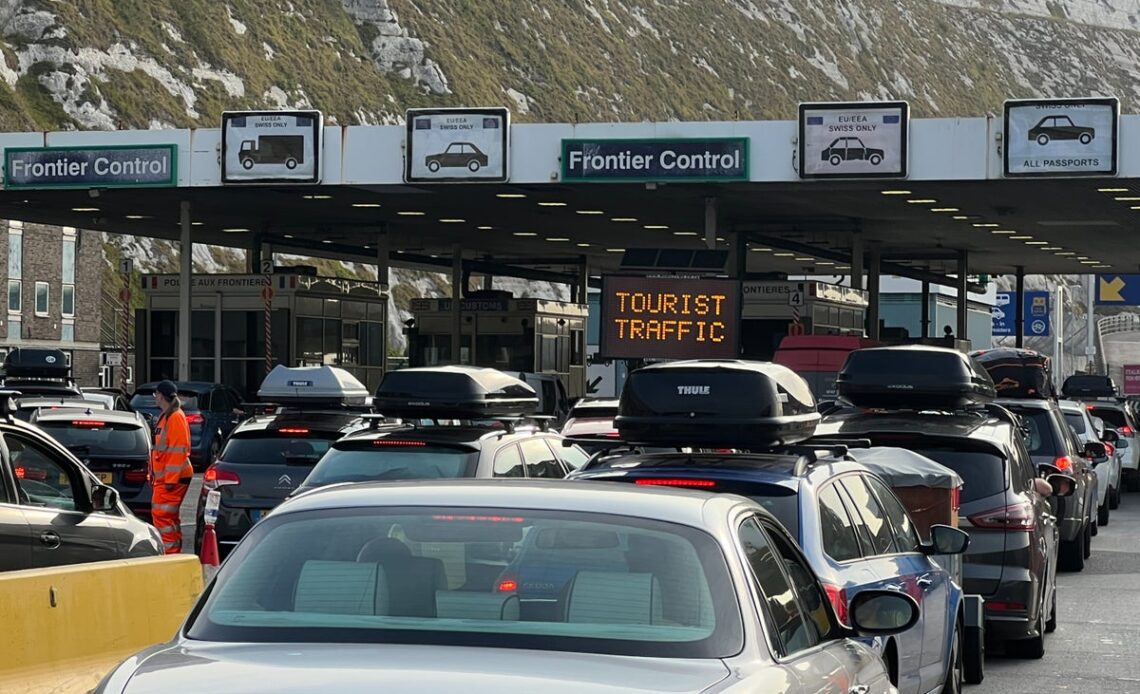The Port of Dover boss has warned that the new EU entry-exit system could cause “significant and continued disruption for a very long time”.
Doug Bannister, chief executive of the UK’s busiest ferry port, told MPs at Wednesday’s transport select committee meeting that seven months before the proposed introduction of new biometric checks, the port does not know the rules and procedures that will apply.
The Brexit withdrawal agreement made the UK a “third country” with strict controls on entry and exit. At Dover, frontier controls are “juxtaposed” with French officials conducting checks on British soil.
At the start of the main summer peak in July, long queues built up due to the need to stamp every passport and, said Mr Bannister, the delayed arrival of some Police aux Frontières officers from France.
Next summer, tougher border checks that the UK helped develop while a member will apply to British passport holders.
Under the EU entry-exit system, each time a third-country national crosses an EU external border, the system will register the date and place of entry and exit. Fingerprints and a facial biometric will also be checked.
The European Union expects the system to enter service in May 2023. It says the system “will replace the current system of manual stamping of passports, which is time-consuming, does not provide reliable data on border crossings, and does not allow a systematic detection of over-stayers”.
But the Port of Dover boss has told MPs: “We haven’t seen with the process is, we don’t know what the technology is, and so it’s very difficult then to estimate what the time would be.
“We need the rules of the game. We need to see what the technology is going to be like.
“We need a sufficient amount of time to trial, test and train to use the technology before implementation – knowing early and then making certain that we’re getting as much lead time as we possibly can to ensure that we’ve got the right people on the ground with the right processes to make certain that it operates properly.
He warned MPs that checkpoint times for motorists leaving the UK could increase seven-fold.
“What we have heard is that it could be two minutes per person to register, plus two minutes for the car, so that’s 10 minutes for a car full of four people,” he said.
“If it comes in, in the worst possible way, in the way that we fear, it’s going to have significant and continued disruption for a very long time.
“For next…
Click Here to Read the Full Original Article at The Independent Travel…
